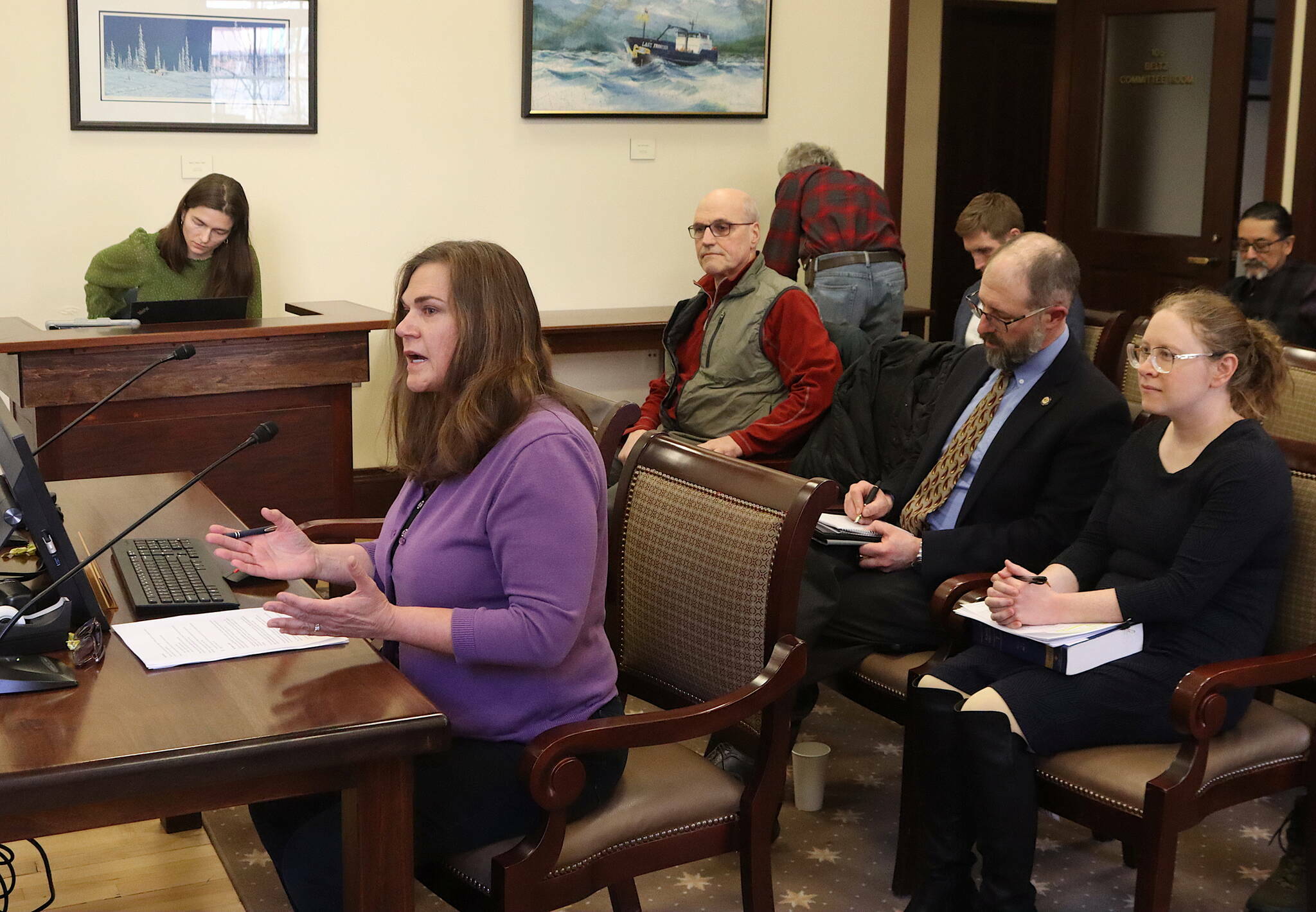While we all have different ideas on how our tax money should be spent, it’s important to put aside those differences to ensure that property tax assessments are fair, transparent and justifiable.
Recently, broad agreement on this issue resulted in draft legislation now under consideration. Two bills, SB242 and HB347, each titled “an act relating to assessment of property, boards of equalization, and certification of assessors,” are winding their way through the Alaska State Legislature.
Initially introduced in the Senate under the sponsorship of Sen. Jesse Kiehl and later in the House by Rep. Julie Columbe, the bills have gained bipartisan co-sponsors and several hearings. Public testimony has been universally in favor of passage.
The impetus for this legislation came about largely through the publication of a white paper on property tax assessments titled “Restoring Public Trust” authored by Haines resident, Brenda Josephson, and Juneau property owner, Greg Adler, representing Goldstein Improvement Company.
The dust-up over property tax assessments came to the forefront when a group of nearly 600 Haines residents signed a petition requesting their Borough Assembly fire their property tax assessor, Michael Dahle. He was hired by Haines in December 2022 after previously serving as the Deputy Assessor for the City and Borough of Juneau (CBJ). The basis for the petitioners’ complaint was excessive and unequal city-wide tax assessments that failed to comply with state statute in calculating a “full and true value.”
Some property owners experienced assessed value increases of 50% to 100% or higher.
Haines taxpayers contended that Mr. Dahle, who was not a licensed appraiser or certified assessor, instituted his own hybrid assessment system that relied heavily on cost replacement values without adequate adjustments for market conditions or functional obsolescence. When taxpayers questioned his methodology and attempted to appeal, they were often stonewalled or, in some cases, threatened with and subjected to even higher retaliatory increases in their assessments.
Under current law, assessors are not required to explain their findings in reaching “true and full value.” They are not obligated to physically survey a subject property or attempt to reach a settlement with its owner before a formal appeal. Furthermore, even if the property owner provides an arms-length sales agreement or fee appraisal, the assessor can disregard it and exclude it as evidence. Appeals heard by a local Board of Equalization (BOE) often defer to the assessor’s opinion.
The draft legislation attempts to correct this through the following provisions:
• Requires assessors be certified by Alaska Association of Assessing Officers or supervised by a certified assessor.
• Prevents property assessments from being raised out-of-cycle during an appeal.
• Composition of the BOE would default to an appointed board rather than elected officials.
• Requires the municipality to adopt formal assessment standards.
• Fee appraisals provided by appellants not accepted as full and true value would require the BOE to justify their findings.
The hiring of Mr. Dahle should have raised a red flag since he was involved in a similar controversy in Juneau while employed there. During Dahle’s tenure, Juneau property owners experienced similar increases in property assessed values that resulted in hundreds of appeals heard by the Juneau BOE.
Very few of those appeals were resolved in favor of the appellant and many dropped their appeals when told their assessment could increase. After some litigation, Juneau city officials agreed to pass an ordinance revising and clarifying appeal procedures. However, these revisions incorporate few of the changes contemplated in the state legislation and still leave Juneau property owners open to potential mistreatment.
Even though most testifiers were from Juneau and Haines, this is a statewide issue as callers from Anchorage, Kenai, Homer, and Seward shared similar stories of unjustifiable assessment increases.
Needing to boost revenue, municipalities across the state levying property taxes are incentivized to maintain the highest assessed values possible. It’s possible for municipalities with millage rate caps to circumvent them by artificially raising their assessments while keeping their millage rates low.
While not a comprehensive “fix,” the guardrails contained in these bills, when followed by taxing authorities, will help ensure that the burden of proof in reaching a “full and true value” will be more equally shared by the property taxpayer and local government.
• After retiring as the senior vice president in charge of business banking for KeyBank in Alaska, Win Gruening became a regular Opinion Page columnist for the Juneau Empire. He was born and raised in Juneau and graduated from the U.S. Air Force Academy in 1970. He is involved in various local and statewide organizations. Columns, My Turns and Letters to the Editor represent the view of the author, not the view of the Juneau Empire. Have something to say? Here’s how to submit a My Turn or letter.

